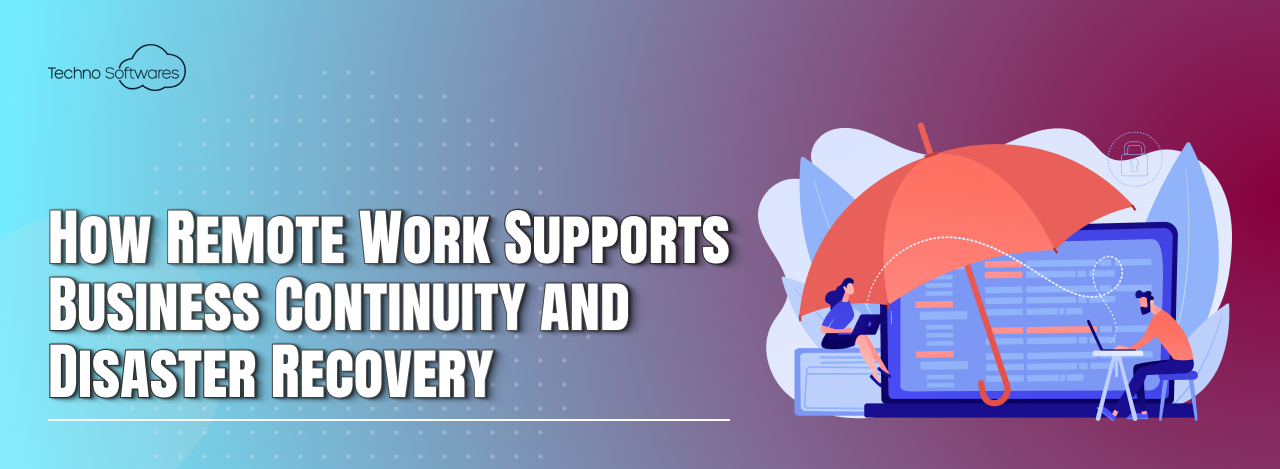Best Practices for Optimizing Expedia API Performance
The Expedia API serves as a powerful tool for developers looking to integrate travel-related functionalities into their applications. It provides access to a vast array of travel services, including hotel bookings, flight reservations, car rentals, and vacation packages. By leveraging this API, developers can create applications that offer users the ability to search for and book travel accommodations seamlessly.
The API is designed to be flexible and scalable, accommodating various use cases from small travel agencies to large-scale travel platforms. To effectively utilize the Expedia API, developers must familiarize themselves with its structure and endpoints. The API is RESTful, meaning it follows standard HTTP methods such as GET, POST, PUT, and DELETE.
Each endpoint corresponds to specific functionalities, such as retrieving hotel information or processing bookings. Additionally, the API requires authentication through an API key, which ensures that only authorized users can access its services. Understanding the nuances of the API’s documentation is crucial for successful implementation, as it outlines the required parameters, response formats, and error handling mechanisms.
Key Takeaways
- Understanding the Expedia API:
- Learn the basics of the Expedia API and how it can be integrated into your application.
- Understand the different endpoints and parameters available for accessing Expedia’s data.
- Analyzing Performance Metrics:
- Use performance metrics to track the response time and efficiency of your API requests.
- Analyze data to identify bottlenecks and areas for improvement in your API integration.
- Implementing Caching Strategies:
- Implement caching strategies to reduce the number of API calls and improve response times.
- Utilize caching mechanisms to store and retrieve frequently accessed data locally.
- Utilizing Asynchronous Requests:
- Use asynchronous requests to improve the efficiency of your API integration.
- Understand the benefits of asynchronous programming for handling multiple API calls simultaneously.
- Optimizing Data Retrieval:
- Optimize data retrieval by using efficient querying techniques and filtering options.
- Minimize the amount of data retrieved to improve performance and reduce network load.
- Managing Rate Limits:
- Understand and manage rate limits imposed by the Expedia API to avoid exceeding usage restrictions.
- Implement strategies to handle rate limit errors and optimize API usage within the allowed limits.
- Monitoring and Troubleshooting:
- Use monitoring tools to track API performance and identify potential issues.
- Troubleshoot common problems such as connectivity issues, authentication errors, and data inconsistencies.
- Techno Softwares: Expert Solutions for API Optimization:
- Partner with Techno Softwares for expert guidance and solutions to optimize your Expedia API integration.
- Leverage Techno Softwares’ expertise to enhance performance, reliability, and efficiency of your API implementation.
Analyzing Performance Metrics
Key Performance Indicators (KPIs)
Key performance indicators (KPIs) such as response time, error rates, and throughput provide insights into how well the API is functioning within an application. For instance, a high response time may indicate network latency or server-side issues, while elevated error rates could suggest problems with request formatting or authentication failures.
Optimizing Applications
By closely monitoring these metrics, developers can identify bottlenecks and optimize their applications accordingly. In addition to basic performance metrics, analyzing user engagement data can also provide valuable insights.
User Engagement Insights
Metrics such as the number of successful bookings, user retention rates, and session durations can help developers understand how users interact with their application. For example, if users frequently abandon their booking process at a specific stage, it may indicate a need for a more intuitive user interface or additional support resources.
Comprehensive Insights for Informed Decisions
By combining technical performance metrics with user engagement data, developers can create a comprehensive picture of their application’s effectiveness and make informed decisions for future enhancements.
Implementing Caching Strategies

Caching strategies play a pivotal role in enhancing the performance of applications that rely on the Expedia API. By storing frequently accessed data temporarily, caching reduces the need for repeated API calls, thereby minimizing latency and improving response times. For instance, if an application frequently retrieves hotel information for a specific location, implementing a caching mechanism can allow the application to serve this data from memory rather than making repeated requests to the API.
There are various caching strategies that developers can employ, including in-memory caching and distributed caching. In-memory caching stores data in the application’s memory space, providing rapid access to frequently requested information. This approach is particularly effective for small-scale applications or when dealing with limited datasets.
On the other hand, distributed caching involves using external caching systems like Redis or Memcached to store data across multiple servers. This method is beneficial for larger applications that require scalability and high availability. By carefully selecting and implementing appropriate caching strategies, developers can significantly enhance their application’s performance while reducing the load on the Expedia API.
Utilizing Asynchronous Requests
Asynchronous requests are a powerful technique for improving the responsiveness of applications that interact with the Expedia API. By allowing multiple requests to be processed concurrently rather than sequentially, asynchronous programming enables applications to handle more tasks simultaneously without blocking the main execution thread. This is particularly advantageous in scenarios where an application needs to retrieve data from multiple endpoints or perform several operations in parallel.
For example, consider an application that needs to fetch hotel availability and flight options simultaneously for a user’s travel itinerary. By utilizing asynchronous requests, the application can initiate both API calls at once and process the responses as they arrive. This not only enhances user experience by reducing wait times but also optimizes resource utilization on both the client and server sides.
Developers can implement asynchronous requests using various programming languages and frameworks that support this paradigm, such as JavaScript with Promises or Python with asyncio. Embracing asynchronous programming techniques can lead to more efficient and responsive applications that leverage the full potential of the Expedia API.
Optimizing Data Retrieval
Optimizing data retrieval from the Expedia API is crucial for ensuring that applications deliver timely and relevant information to users. One effective approach is to minimize the amount of data requested by using query parameters strategically. For instance, when searching for hotels, developers can specify filters such as location, price range, and amenities to narrow down results.
This not only reduces the size of the response payload but also speeds up processing times by eliminating unnecessary data. Another optimization technique involves paginating results when dealing with large datasets. Instead of retrieving all available data in a single request, developers can implement pagination to fetch smaller chunks of data incrementally.
This approach not only improves performance but also enhances user experience by allowing users to browse through results more easily. Additionally, caching previously retrieved data can further optimize data retrieval processes by reducing redundant API calls for frequently accessed information.
Managing Rate Limits

Understanding Rate Limits
Rate limits are a crucial aspect of working with APIs, as they dictate how many requests an application can make within a specified timeframe. Understanding and managing these limits is critical for maintaining application stability and ensuring compliance with API usage policies. Exceeding rate limits can result in temporary bans or throttling of requests, which can severely impact user experience.
Managing Rate Limits Effectively
To effectively manage rate limits, developers should implement strategies such as request queuing and exponential backoff algorithms. Request queuing involves organizing outgoing requests in a manner that adheres to rate limits while still allowing for efficient processing. This approach enables developers to manage their API requests in a way that minimizes the risk of exceeding rate limits.
Implementing Exponential Backoff Algorithms
Exponential backoff algorithms help manage retries after encountering rate limit errors by gradually increasing wait times between successive attempts. By incorporating these algorithms into their applications, developers can ensure that they remain within acceptable usage thresholds while still providing timely responses to users. This approach allows developers to balance the need for efficient processing with the need to comply with API usage policies.
Best Practices for Rate Limit Management
By incorporating these strategies into their applications, developers can ensure that they remain within acceptable usage thresholds while still providing timely responses to users. Effective rate limit management is critical for maintaining application stability, ensuring compliance with API usage policies, and providing a positive user experience.
Monitoring and Troubleshooting
Monitoring and troubleshooting are vital components of maintaining a robust integration with the Expedia API. Continuous monitoring allows developers to track performance metrics in real-time and identify potential issues before they escalate into significant problems. Tools such as application performance monitoring (APM) solutions can provide insights into response times, error rates, and user interactions with the application.
When issues arise, effective troubleshooting requires a systematic approach to identify root causes. Developers should analyze logs generated during API interactions to pinpoint errors or anomalies in request formatting or response handling. Additionally, leveraging tools like Postman or cURL can help simulate API calls independently of the application environment, allowing developers to isolate issues more effectively.
By establishing a comprehensive monitoring and troubleshooting framework, developers can ensure that their applications remain reliable and responsive while interacting with the Expedia API.
Techno Softwares: Expert Solutions for API Optimization
Techno Softwares stands out as a leading provider of expert solutions tailored for optimizing API integrations like those with the Expedia API. With a deep understanding of both travel technology and software development best practices, Techno Softwares offers a range of services designed to enhance performance and streamline operations for businesses in the travel sector. One of their key offerings includes custom caching solutions that are specifically designed to meet the unique demands of travel applications.
By implementing advanced caching strategies tailored to individual business needs, Techno Softwares helps clients reduce latency and improve user experience significantly. Furthermore, their expertise in asynchronous programming allows them to develop applications that efficiently handle multiple requests simultaneously, ensuring that users receive timely information without delays. In addition to performance optimization services, Techno Softwares provides comprehensive monitoring solutions that enable businesses to track their API interactions effectively.
Their monitoring tools offer real-time insights into performance metrics and user engagement data, empowering businesses to make informed decisions based on actionable analytics. With Techno Softwares’ expert solutions at their disposal, companies leveraging the Expedia API can achieve optimal performance while delivering exceptional user experiences in an increasingly competitive travel market.
If you are interested in learning more about maximizing efficiency with enterprise content management software, Techno Softwares has a helpful article on the topic which you can find here. Additionally, if you are looking to improve your WordPress user experience, Techno Softwares also offers valuable insights in their article which you can access here. With their expertise in various areas of technology, Techno Softwares can help you optimize your Expedia API performance and achieve your business goals.
FAQs
What is Expedia API?
Expedia API is a set of web services provided by Expedia that allows developers to access and integrate Expedia’s travel data and services into their own applications.
Why is optimizing Expedia API performance important?
Optimizing Expedia API performance is important to ensure that applications using the API are able to retrieve data quickly and efficiently, providing a better user experience and reducing the load on the Expedia servers.
What are the best practices for optimizing Expedia API performance?
Some best practices for optimizing Expedia API performance include using caching to reduce the number of API calls, minimizing the amount of data retrieved from the API, and using asynchronous requests to improve responsiveness.
How can Techno Softwares help with optimizing Expedia API performance?
Techno Softwares can help optimize Expedia API performance by providing custom development services to create efficient and effective applications that make the most of the Expedia API. They can also offer expertise in implementing best practices for API performance optimization.





